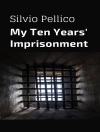In Latin America, where even today writing has remained a restricted form of expression, the task of generating consent and imposing the emergent nation-state as the exclusive form of the political, was largely conferred to the image. Furthermore, at the moment of its historical demise, the new, ‘postmodern’ forms of sovereignty appear to rely even more heavily on visual discourses of power. However, a critique of the iconography of the modern state-form has been missing. This volume is the first concerted attempt by cultural, historical and visual scholars to address the political dimension of visual culture in Latin America, in a comparative perspective spanning various regions and historical stages. The case studies are divided into four sections, analysing the formation of a public sphere, the visual politics of avant-garde art, the impact of mass society on political iconography, and the consolidation and crisis of territory as a key icon of the state.
Tabela de Conteúdo
List of Illustrations
Introduction: The Power of Images
Jens Andermann and William Rowe
PART I: MEMORY AND THE PUBLIC ARENA
Chapter 1. From Royal Subject to Citizen: the Territory of the Body in Eighteenth- and Nineteenth-Century Mexican Visual Practices
Magali M. Carrera
Chapter 2. The Mexican Codices and the Visual Language of Revolution
Gordon Brotherston
Chapter 3. Subversive Needlework: Gender, Class and History at Venezuela´s National Exhibition, 1883
Beatriz González Stephan (transl. Heike Vogt)
Chapter 4. Material Memories: Tradition and Amnesia in two Argentine Museums
Alvaro Fernández Bravo
PART II: SELF AND OTHER IN THE AVANT-GARDE
Chapter 5. Exoticism, Alterity and the Ecuadorean Elite: The Work of Camilo Egas
Trinidad Pérez (transl. Philip Derbyshire)
Chapter 6. Primitivist Iconographies: Tango and Samba, Images of the Nation
Florencia Garramuño
Chapter 7. ‘Argentina in the World’: Internationalist Nationalism in the Art of the 1960s
Andrea Giunta (transl. Emma Thomas)
PART III: MASSES AND MONUMENTALITY
Chapter 8. ‘Cold as the Stone of which it Must be Made’: Caboclos, Monuments and the Memory of Independence in Bahia, Brazil, 1870–1900
Hendrik Kraay
Chapter 9. Photography, Memory, Disavowal: the Casasola Archive
Andrea Noble
Chapter 10. Mass and Multitude: Bastardised Iconographies of the Modern Order
Graciela Montaldo
PART IV: SPACES OF FLIGHT AND CAPTURE
Chapter 11. Marconi and other Artifices: Long-range Technology and the Conquest of the Desert
Claudio Canaparo (transl. Peter Cooke)
Chapter 12. Desert Dreams: Nomadic Tourists and Cultural Discontent
Gabriela Nouzeilles (transl. Jens Andermann)
Chapter 13. Why the Virgin of Zapopan went to Los Angeles: Reflections on Mobility and Globality
Mary Louise Pratt
Notes on Contributors
Index
Sobre o autor
Jens Andermann is a Lecturer in Latin American Studies at Birkbeck College, London, and co-editor of the Journal of Latin American Cultural Studies. Among his publications are Mapas de poder: una arqueología literaria del espacio argentino (Rosario, 2000) and articles for major journals in Argentina, Brazil, Europe and the US.












